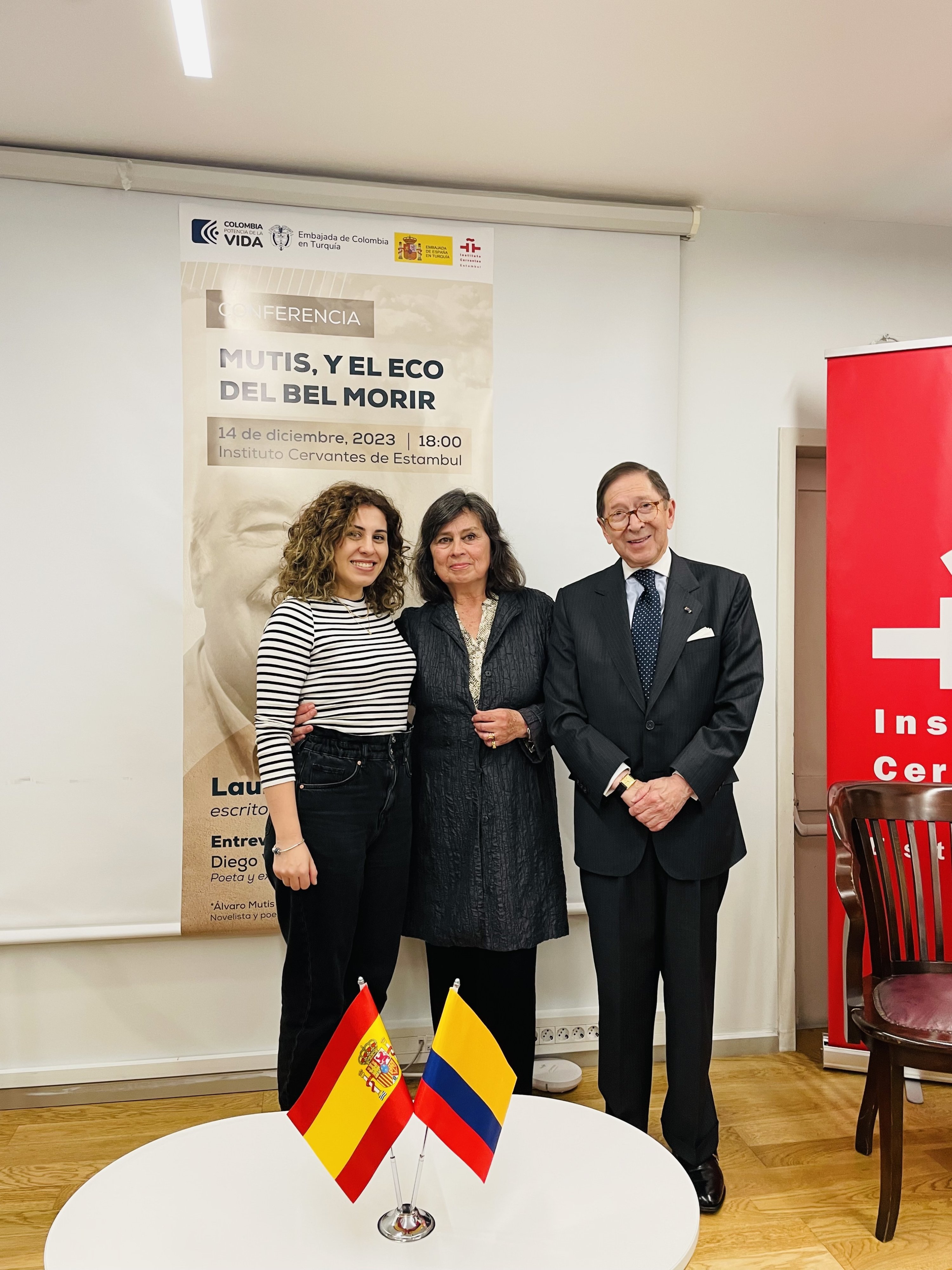© Turkuvaz Haberleşme ve Yayıncılık 2026
A renowned Colombian author and journalist known for her powerful storytelling, tackling themes related to Colombian society, politics and history, Laura Restrepo was hosted by Istanbul's Cervantes Institute at an event hosted by the Embassy of Colombia in Türkiye, to commemorate the 100th death anniversary of Alvaro Mutis. Mutis was a Colombian writer, poet and author, who received several prestigious awards during his lifetime, including the Cervantes Prize, one of the most esteemed literary awards in the Spanish-speaking world, in 2001.
In a colloquium accompanied by expert poet on Mutis' work Diego Valverde Villena, Restrepo shared insights about the hailed writer Mutis, whose name was also given to the institute's library in Istanbul.
In a candid interview, also accompanied by her son Pedro Saboulard, she shared profound insights into her recent endeavors in Gaza, shedding light on the plight of its people and the implications for global society. She also expressed the challenges faced when attempting to access Gaza, citing its proximity and restrictive entry.
"My son Pedro and I, with the aid of Medecins Sans Frontieres (MSF) and the Colombian Embassy, sought to enter Gaza, encountering difficulties due to its inaccessible nature. While there, we witnessed the separation of a family – half inside, half outside – an experience that deepened my involvement," she started.
The novelist emphasized the urgency of addressing Gaza's situation, not solely for its inhabitants' rights to life and land but also for the broader global ramifications. "If the turmoil in Gaza persists unchecked, it's a harbinger of what awaits the world. The fate of the third world mirrors Gaza's plight –forced migrations due to water scarcity and conflict," she cautioned.
Also, in an article she wrote with Pedro, they highlighted the profound impact of the tragedy, resonating with individuals such as a young Egyptian, a merchant in Cairo's Khan el-Khalili market, who broke down in tears when a customer asked him to sell a Palestinian scarf or a homemaker in Bogota, recounting how night after night, she fixates on the screen while news of the destruction of Gaza unfolds.

The legacy of Alvaro Mutis, an esteemed literary figure renowned for his multifaceted works, resonates profoundly within the realms of Latin American literature and extends far beyond geographical borders as it was in Istanbul.
"What I love the most about Mutis' work is his poetry. He has a character that has become a myth in Latin America, but outside the world too. That is Maqroll, the name Maqroll, who is the sailor, the man who's always looking to run away from the earth and searching for water as a way to live his life in a permanent adventure. What I like about him is his adventures living nowhere. He never succeeds in those adventures. He doesn't even search for success, but it's always like a way to defy his death or to look for it, to come to his death in a dignified and sort of arrogant way," she said, referencing her beloved literary character from "The Adventures and Misadventures of Maqroll."
"Maqroll embodies the pursuit of utopia – an intangible realm, much like 'Constantinople' in the eyes of Mutis. It's a place where cherished ideals exist, evoking a poignant sense of yearning," she elaborated.
Delving into the thematic essence of his poetry, Restrepo highlighted its focus on hospitals in remote locales, reflecting on the human condition amid desolation and societal upheavals. Notably, his works "Elemento del Desastre" ("The Elements of Disaster") and poems set in distant hospitals encapsulate the prevailing sense of an impending apocalypse due to wars and pandemics.
"Mutis exudes the power of poetry in capturing the zeitgeist of our times, encapsulating the feelings of impending cataclysm amid societal chaos," she concluded.
